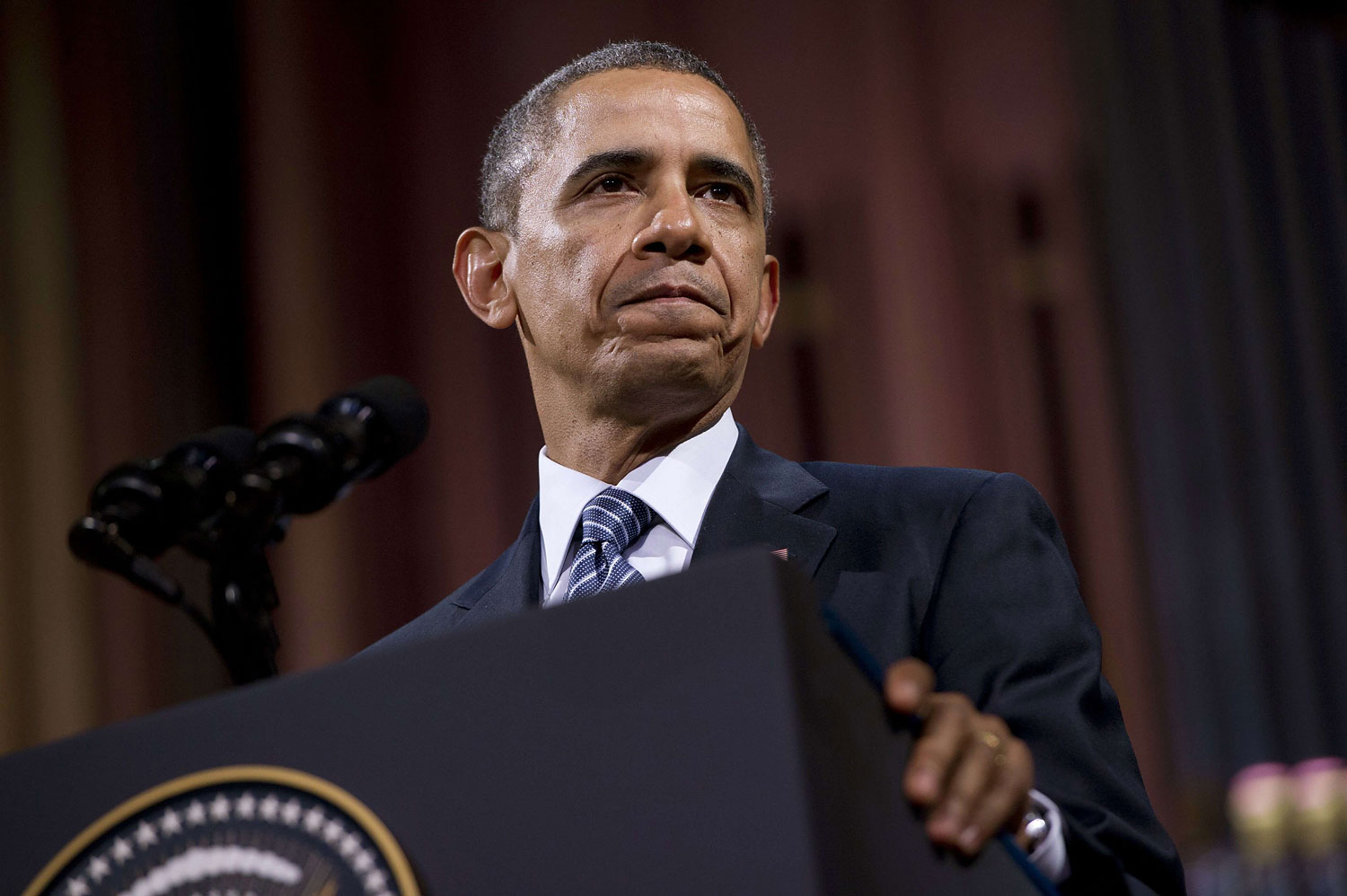
President Barack Obama outlined a scaled-down version of the controversial NSA program that collects data on millions of Americans’ phone calls Thursday, almost one year after disclosure of the surveillance by former NSA contractor Edward Snowden sparked widespread outrage and calls for reform.
The proposal, which Obama called on Congress to enact swiftly, would effectively end the so-called Section 215 program, under which the National Security Agency maintains a database of telephone calling records. Instead, phone companies would hold the records and law enforcement agencies would be required to seek approval from the secretive Foreign Intelligence Surveillance Court to search specific numbers.
“Having carefully considered the available options, I have decided that the best path forward is that the government should not collect or hold this data in bulk,” Obama said in a statement Thursday morning. “Instead, the data should remain at the telephone companies for the length of time it currently does today. The government would obtain the data pursuant to individual orders from the Foreign Intelligence Surveillance Court (FISC) approving the use of specific numbers for such queries, if a judge agrees based on national security concerns. Legislation will be needed to permit the government to obtain this information with the speed and in the manner that will be required to make this approach workable.”
Lawmakers on Capitol Hill are slowly moving forward with legislation to bring about the reforms. Obama has directed the Department of Justice to seek reauthorization for the existing program for another 90 days, allowing Congress time to establish the new program.
Briefing reporters, senior administration officials repeatedly declined to specify the criteria for an “emergency situation” that would allow the federal government to act without approval from the FISC.
The White House released a fact sheet outlining the new program:
· the government will not collect these telephone records in bulk; rather, the records would remain at the telephone companies for the length of time they currently do today;
· absent an emergency situation, the government would obtain the records only pursuant to individual orders from the FISC approving the use of specific numbers for such queries, if a judge agrees based on national security concerns;
· the records provided to the government in response to queries would only be within two hops of the selection term being used, and the government¹s handling of any records it acquires will be governed by minimization procedures approved by the FISC;
· the court-approved numbers could be used to query the data over a limited period of time without returning to the FISC for approval, and the production of records would be ongoing and prospective; and
· the companies would be compelled by court order to provide technical assistance to ensure that the records can be queried and that results are transmitted to the government in a usable format and in a timely manner.
More Must-Reads From TIME
- The 100 Most Influential People of 2024
- The Revolution of Yulia Navalnaya
- 6 Compliments That Land Every Time
- Stop Looking for Your Forever Home
- If You're Dating Right Now , You're Brave: Column
- The AI That Could Heal a Divided Internet
- Fallout Is a Brilliant Model for the Future of Video Game Adaptations
- Want Weekly Recs on What to Watch, Read, and More? Sign Up for Worth Your Time
Contact us at letters@time.com